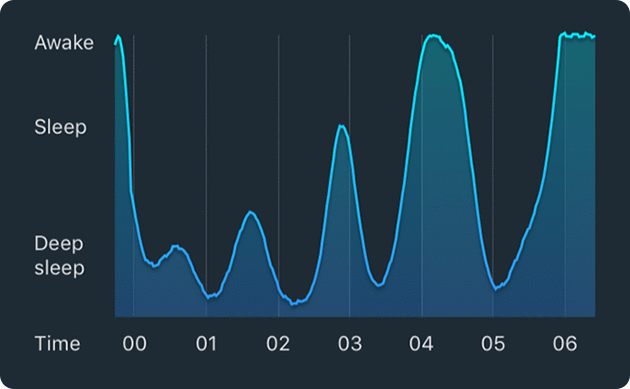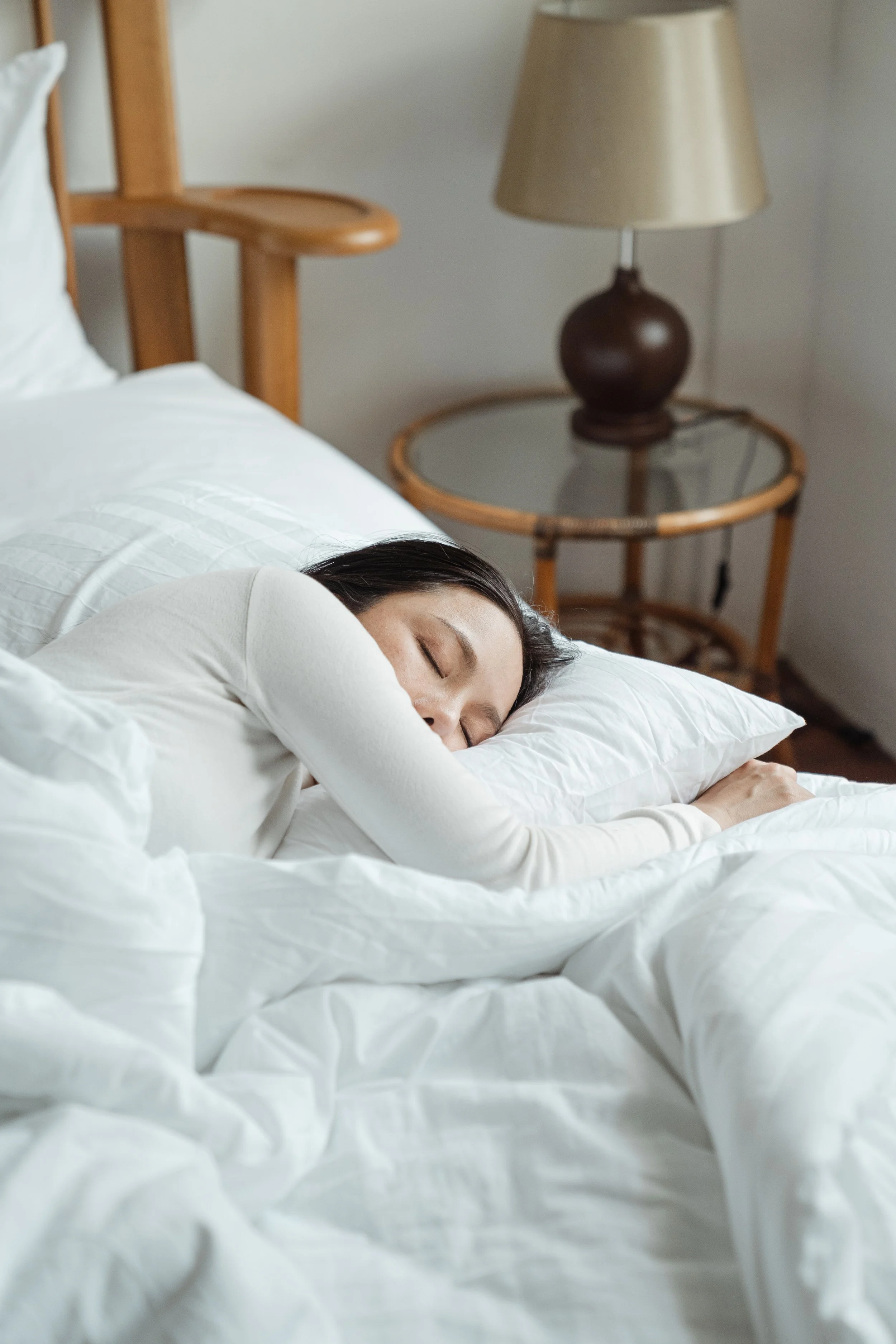Light VS Deep Sleepers (And How To Change Your Sleep Style)
Being a light vs deep sleeper can be a defining quality in us as partners, friends, roommates and travel buddies. Light sleepers and snorers notoriously don’t mix well. Deep sleepers can struggle to find alarms that work for them or to wake up to the phone ringing. But what really makes a person a light vs deep sleeper? How do you know which one you are? And does it really impact your overall sleep quality and wellness?
The cause of being a light vs deep sleeper
There are a few things that can cause you to be more of a light VS deep or heavy sleeper. Before diving into that though, we need to talk about sleep stages.
There are different stages to your sleep:
Stage 1 is non-rapid eye movement sleep, where you’re transitioning from being awake to sleeping.
Stage 2 is then you start relaxing, your heart rate and breathing rate slow and you fall deeper into sleep.
Stage 3 is deep sleep, when your heart rate super slows and it’s usually harder to wake people up.
Stage 4 is REM sleep – or rapid eye movement – when you usually dream and your eyes actually move under your eyelids. It takes about 90 minutes for a person to enter REM sleep.
Most people follow through these stages and cycle through them throughout the night. These stages make up your sleep.
A light sleeper, however, may not spend as much time in the deeper stages of sleep. A deep sleeper could spend more time in the deeper stages of sleep. Spending more time in deep or light sleep impacts how connected you are to the outside world while you sleep - therefore making you
But this is just one potential “cause” of being light vs deep sleeper (and this cause is more of a symptom, not a cause). What can actually CAUSE these different times spend in sleep stages include:
Lifestyle like exercise, eating habits and alcohol consumption
A sleep disorder
Chronic sleep deprivation
Hormone imbalances
Brain activity
How to tell if you’re a light sleeper
Light sleepers are easily recognized by people that wake up easily to small noises, movement or changes to their sleep environments. The smell of someone cooking, the sound or someone flushing the toilet or a heavy item being dropped - even light could rouse them from sleep.
If this sounds like you, you’re probably a light sleeper.
How to tell if you’re a heavy or deep sleeper
Heavy sleepers are known to sleep through anything.They’re the reason that so many different types of alarms exist (we’re talking about those standing alarms, vibrating alarms and light alarms.) But it’s more than that. Heavy sleepers may have a harder time getting up in the morning and may need more sleep to feel rested.
If you are rarely woken up by outside influences, you could be a heavy sleeper.
Can you change what type of sleeper you are?
Yes! In many cases, you can! Although there are some physical and uncontrollable causes of being a deep or light sleeper, your sleep habits can help balance out your sleep cycles. The more balanced your mind, body, hormones, and gut (yes gut!) are, the more likely you are to have a restful sleep with perfect levels of deep sleep and light sleep.
This is how you do it:
Set and maintain a sleep schedule
Try to relax before bed (maybe with a sleep routine!)
Block out noise and light
Be active throughout the day
Maintain general wellness (exercise, hydration etc)
Get to bed early enough for a full night of sleep
Get up when you wake up and don’t hit snooze
These are general sleep health habits that everyone should follow. But, if you’re hoping to have a more balanced sleep, these tips will help.
Worried that being a deep or light sleeper is impacting your life?
A sleep study can shine a light on what happens while you sleep. Not only are they covered by OHIP, but they’re pretty much the only way to learn what happens to you while you sleep. Call your doctor and get a referral for a sleep study today!


